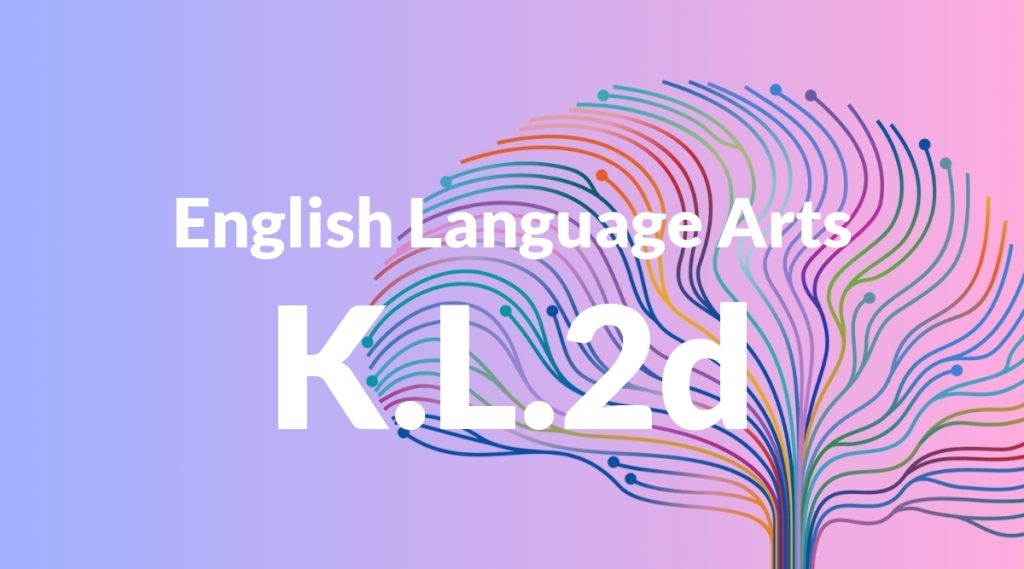Standard: K.L.2d – Spell simple words phonetically, drawing on knowledge of sound-letter relationships.
Grade level: Kindergarten
Subject: English Language Arts
Domain: Language
Teacher Overview
This standard focuses on helping kindergarten students spell simple words phonetically by using their knowledge of sound-letter relationships. This foundational skill is crucial for developing early literacy, as it bridges the gap between recognizing letters and forming words. Mastery of this standard will support students in their reading and writing journey. Before beginning this standard, students should be familiar with the alphabet and the basic sounds each letter makes. This foundational knowledge will enable them to understand and apply phonetic spelling strategies.
After mastering this standard, students will be able to spell more complex words, improve their reading fluency, and enhance their overall writing skills, laying a strong foundation for future literacy development.
Common Misconception 1
A common misconception is that every letter in a word must be written exactly as it sounds. This is incorrect because some sounds can be represented by different letters or letter combinations, which can vary depending on the word.
Intervention 1
To remediate this misconception, use visual aids and phonetic charts to demonstrate that some sounds can be represented by different letters or letter combinations. Provide examples and practice opportunities.
Common Misconception 2
Another misconception is that silent letters should be pronounced. This is incorrect because silent letters are not vocalized but are essential for the correct spelling of words.
Intervention 2
To address this misconception, provide practice with words that include silent letters and emphasize the correct pronunciation and spelling. Use engaging activities to reinforce this concept.
Prerequisite Knowledge
Students should have a basic understanding of the alphabet and the sounds associated with each letter before tackling phonetic spelling.
Subsequent Knowledge
After mastering phonetic spelling, students will develop the ability to spell more complex words, improve their reading fluency, and enhance their writing skills.
Instructional Activities
- Label objects in the classroom using phonetic spelling.
- Create simple stories with students using phonetic spelling.
- Play word games that emphasize sound-letter relationships.
- Incorporate phonetic spelling in daily journaling activities.
- Read and write simple sentences together.




